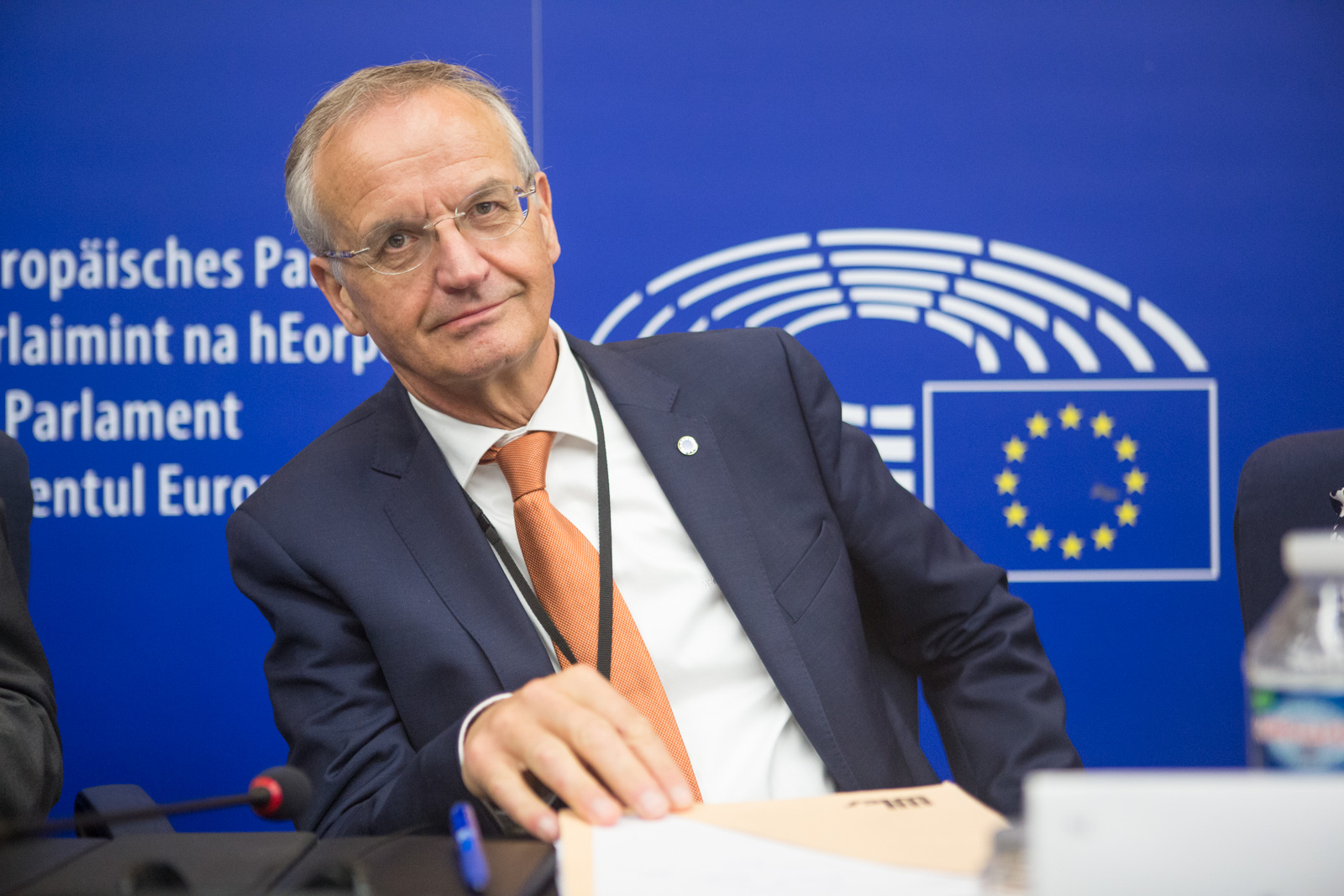Lambert van Nistelrooij: Let the Stars Shine
Lambert van Nistelrooij, Member of European Parliament and co-chair of the Intergroup on Active Ageing, Intergenerational Solidarity and Family Policies, will be speaking at the AAL Forum 2017 and will provide an insight into the role the Internet of Things plays in the future success of active and assisted living, and the opportunities from society’s innovative ideas.
With an expansive career spanning social geography and demography, Lambert will bring an abundance of knowledge on society, the ageing population, and innovation to the forum.
As the life-expectancy of people has continued to rise, and the number of sufferers of such conditions as dementia also increases, there has been a constant progression of innovative solutions, projects and programmes to tackle these problems – and this is what has kept Lambert fascinated for almost 25 years.
He has remained active in the fields of care, both in and outside of the European Parliament. He is president of the advisory board for SmartHomes in the Netherlands, an institution that is working on domotics – the integration of technology in the home for a better quality of life. This means he sees and understands how things happen every day for informal and formal care workers, for hospitals and care homes, for the ageing population, and how advanced technological developments impact them all.
“When it comes to active ageing and assisted technology,” Lambert says, “it is not just about helping people and giving them perspective on longer independence. It is also about fostering the new technologies, the new innovative possibilities that are out there in the public domain. I am always asking myself: “do we do enough to help the changing population; is there reasonable uptake of innovation in Europe?””
Lambert believes there isn’t, and when there is a wealth of expertise and talent in the field of ageing and care working in “hospitals, care homes, with universities, or for projects or family members who know what it is that society needs”, it begs the question as to why we are not using all of their knowledge more wisely.
This is why, in 2016, Lambert started the action “Let the Stars Shine” to tap into the vast pool of innovative ideas in such fields as age-appropriate assistive technology, and inspire these potential ambassadors. Along with eight other EPP European parliamentarians, this initiative aims to bring Europe closer to its citizens.
However, while Let the Stars Shine is a step forward to improving awareness of new technologies, there are still a number of barriers and challenges in Europe, and “if Europe wants to stay competitive in the work of technology, we have to improve the infrastructure for rolling out new innovative products,” Lambert says.
“Whether you work in Paris, or in the eastern part of Poland or rural Romania, there needs to be more cooperation programmes,” Lambert adds. “With 28 different financial climates and individual internal markets, it can become very difficult to find the right solution for everybody”.
A big part of connecting these 28 countries together and securing a stronger foundation that will foster the distribution of ideas, advances, developments and solutions is the Internet of Things (IoT) and, according to Lambert, we are not currently connected in the correct way.
“Institutions, hospitals and even individuals cannot send and receive vital information to each other, and this is critical. We have the new developments in AAL but if you start working in a region where this basic connectivity infrastructure is not available, how do you connect, raise awareness, make investments and share ideas? For AAL types of programmes, this connectivity is very important.
“In 10 or 20 years time, AAL should be connected completely with IoT and countries should be proactively learning and sharing between each other. The future should be about putting the client first and guaranteeing everyone the opportunity to communicate.”
Although there are many projects similar to AAL in Europe, there is not necessarily the connectivity between national, regional and international levels. “The AAL Programme is very much at the forefront of pushing the clients, the end-users, and the innovators story,” says Lambert. “It has developed independently and is extremely diverse – it looks at several target groups, both urban and rural, formal care institutions and home situations, and the young and the ageing. It is very much a bottom-up approach and not top-down.
“The programme also focuses on the silver economy, an important concept that promotes the generation of ideas and promotes tailor-made programmes that put the client at the centre. This is needed to integrate solutions into society.”
IoT and the future of the success and implementation of AAL solutions will be a key point of discussion for Lambert at the forum. His extensive understanding of the implementation of innovative technological solutions for the ageing population in Europe will offer valuable insight into how the AAL Programme can move forward. Be sure to come along for a different perspective on AAL.

